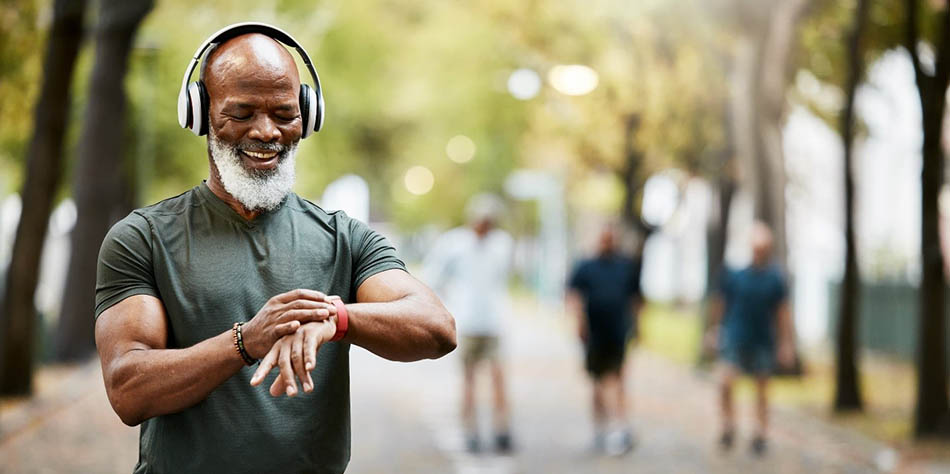
When considering the best time for exercise, there's no magic fitness hour. The most important thing is that you make exercise part of your weekly routine. Timing can make small differences, but the big difference comes from moving your body, getting your heart rate up and building your strength on a consistent basis.
For optimal health, the Centers for Disease Control and Prevention recommends at least 150 minutes of moderate exercise plus two sessions of a strength-training activity each week. For example, that might look like 30 minutes of aerobic or cardiac exercise (e.g., walking, jogging, dancing, cycling) five times a week plus whole-body strength-training exercises twice a week, such as lifting weights, heavy gardening, pushups or some types of yoga.
With that said, the timing of exercise might increase its effectiveness or the likelihood that you'll establish it as a habit.
Understanding the best time for exercise
Your body has an internal clock that regulates your sleep, appetite, hormone release and body temperature. These circadian rhythms are influenced by many factors, such as light and darkness, what you eat and different activities, including exercise. Everyone's body clock runs a little differently, so you may find that exercising at certain times of day works better for you. Finding the best time to exercise may take a little trial and error. Here's a look at some of the benefits of exercise at different times of day.
Benefits of morning exercise
If you're an early bird or you like getting big tasks done in the morning, morning exercise carries many benefits.
Set the tone for the day
Start your day off strong with a healthy activity and you might be more likely to follow up with healthy eating and other good habits.
Take advantage of morning motivation
Many people feel more motivated in the morning, and a morning exercise schedule can take advantage of that. Crossing something off your to-do list can help maintain that feeling of motivation throughout the day, too. It also ensures you get exercise in even if the rest of your day doesn't go according to plan.
Burn more fat
Some studies show that exercising before breakfast or on an empty stomach can help you burn more fat than exercising after a meal. In a study in Frontiers in Physiology, women who exercised in the morning lost more body fat and had lower blood pressure compared to women who exercised later in the day. A study in Exercise and Sport Sciences Reviews found that morning exercise is associated with a lower risk of obesity and overweight. However, other, similar studies didn't find this association, so more research is needed.
Sleep better
Exercising in the morning may help shift your circadian rhythms and stimulate an earlier melatonin release in the evening, which can lead to better sleep.
Benefits of afternoon exercise
Rough day? Hitting the gym or taking a walk in the afternoon can be an excellent stress buster while also providing other health benefits.
Lower your risk of heart disease
Recent evidence shows that afternoon exercise may lead to a lower risk of heart disease and reduced risks for death due to cardiovascular disease and other natural causes of death, especially in men.
Reduce your risk of exercise-related heart attack
Exercise is important for heart health overall, and it also lowers the risk of heart attack. But, in rare cases, vigorous exercise can bring on a heart attack. People are less likely to have a heart attack between 11 a.m. and 5 p.m., so exercising within this window may lower your risk of exercise-related heart attack.
Improve blood sugar control
Exercise helps improve blood sugar control in people with or at risk for Type 2 diabetes. One study showed that men with Type 2 diabetes who exercised in the afternoon saw more benefits than those who exercised at other times of day, including better blood sugar control and reduced fat around their stomachs.
Benefits of evening exercise
Do the days fly by before you get the chance to fit in your workout? Don't sweat it. Exercise in the evening has benefits, too.
Improve sleep quality
While exercise raises your heart rate and body temperature, which can affect sleep quality, many people find that evening exercise actually improves deep, rapid eye movement (REM) sleep. Try allowing an hour to an hour and a half between exercise and heading to bed for the best results.
Maximize strength
The study in Frontiers in Physiology found that women who exercised in the evening improved their upper body strength by 7% more than those who exercised in the morning. They also powered through more pushups and situps.
Get social
At the end of the day, you might be able to convince your children, spouse, roommate or others to join you — making it both a social and health-boosting activity.
Keeping a consistent routine that works for you
No matter which time of day works best for you, choosing a consistent time for exercise helps people stick to their routine — and gain more health advantages, as the study in Exercise and Sport Sciences Reviews shows. Give yourself time to find the right schedule and establish your routine. Developing a habit takes two to three months on average.
Your level of effort makes a difference, too. Getting into the groove with an easy habit usually goes over better than going full speed on your first day. So, rather than planning to take a two-hour hike on a strenuous trail, start with a 30-minute stroll in the park while you listen to music or your favorite podcast. Then, increase the intensity as exercise becomes a solid part of your routine. At the end of the day, the best time for exercise is the time that works for your life and schedule.
$webqFacilityNumber
Need a Physician?